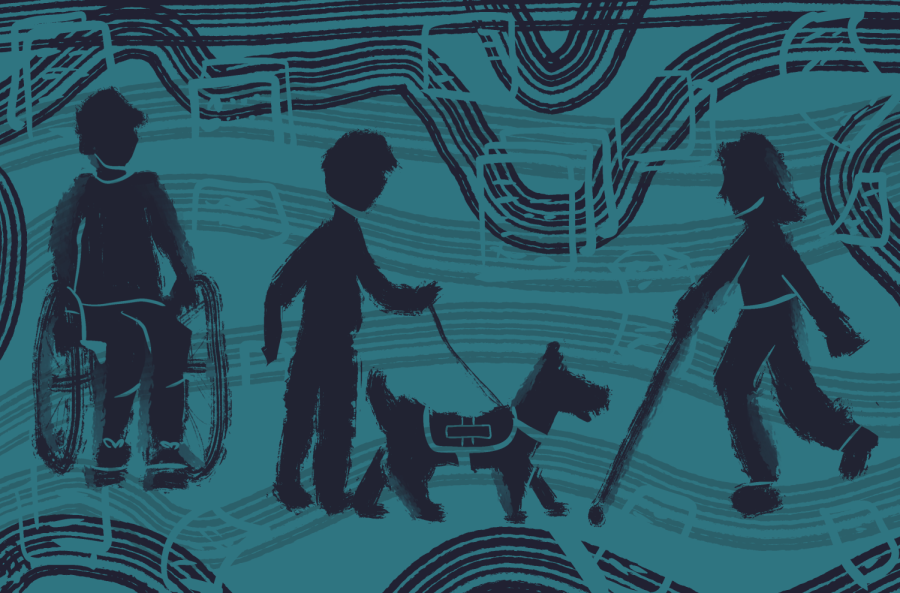Disability Activists Await SCOTUS Trial
The Supreme Court will rule on Health and Hospital Corporation of Marion County (HHC) v. Taleski in the next three weeks. Its ruling will decide whether or not disabled people can sue for mistreatment while on Medicaid.
The Supreme Court picked up the case on the grounds of Section 1983, which grants citizens the right to sue for civil rights violations.
The case began earlier this year with Gorgi Talevski, a man in an Indiana nursing home facility on Medicaid. Instead of treating his dementia, staff at Valparaiso Care and Rehab allegedly chose to chemically sedate Talevski. The Talevski family filed suit against HHC, the parent company of the nursing facility. HHC wrote a petition to the Supreme Court to have the case heard at the national level. The result will affect all Americans on Medicaid, but most immediately those in the disabled community.
Disability activists and disability law experts agree that the outcome of HHC v. Taleski could have substantial effects upon the legal autonomy of disabled people. Jalyn Radziminski, communications manager of the Bazelon Center for Mental Health Law and first-year Fordham University law student, explained that the government would be the sole entity responsible for the accountability of Medicaid providers.
“We wouldn’t individually have the right to sue, but the advocacy organizations also wouldn’t be able to step in the same way they could in the past,” Radziminski said.
When advocacy and watchdog groups no longer have the power to step in and spot malpractice, the government will be the sole investigator of complaints by individuals. In many cases these investigations will result in paused funding while the investigation runs its course, which could impact the estimated 80 million Americans on Medicaid, according to an amicus brief sent to the Supreme Court by Indiana Disability Rights. The program is already regarded as critically underfunded by many in the disabled community.
Medicaid is one of the largest providers of healthcare for disabled people, granting many Americans access to assisted living, healthcare and mobility aids such as wheelchairs.
“Medicaid is the program and the doorway for people with disabilities to access the services and support that we need to live in the community,” Claudia Center, legal director of Disability Rights Education and Defense Fund (DREDF) said.
Judy Heumann, disability rights advocate and advisor to the Obama administration on disability rights, views this case as an issue addressing autonomy. She emphasizes the importance of self-determination that able-bodied people often take for granted.
“If poor services are being provided, then the ability to complain about the poor services is a right that you should have,” Heumann said. “This case happens to be around a nursing home.”
The potential relevance of Talevski v. HHC could extend to other so-called “safety net programs,” such as Medicare, Supplemental Nutrition Assistance Program (SNAP) and Children’s Health Insurance Program (CHIP), depending on the Supreme Court ruling.
The Board of Trustees at HHC is responsible for the petition to the Supreme Court. A separate petition created in opposition to the Board of Trustees by Hoosier Action, an activist group in Indiana, gained traction within the past week, garnering over 18,000 signatures nationally. The Bazelon Center, Hoosier Action and DREDF all requested that the HHC Board of Trustees pull back from taking the case to the Supreme Court.
Tracey Hutchings-Goetz, communications director for Hoosier Action, views this decision as a turning point in how Indiana activists may plan their next steps to further protect disability rights.
“What I have seen over and over again, and exactly what happened in this case, is that disability rights advocates and people who are disabled are often the first ones hurt by bad policy decisions. So they are the first ones to sound the alarm,” Hutchings-Goetz said.
The current state of disability activism requires a level of hypervigilance never seen before, according to those in the community. Similar to Hutchings-Goetz, Center remarked that the burden of activism falls on disabled individuals.
“It’s really exhausting, but it’s the only strategy that retains our rights at this point,” Center said.
The HHC board members chose to maintain their position and advocate for a hearing at the federal level, against the behest of disability rights activists. The Oct. 18 decision to go through with the case means that it will likely be heard Nov. 8, as previously scheduled. Talevski v. HHC will face a conservative majority at the Supreme Court, where legal counsel for disability rights organizations speculate that the court will rule in HHC’s favor, thus removing disabled Americans’ ability to sue, though the ruling ultimately remains to be seen.




